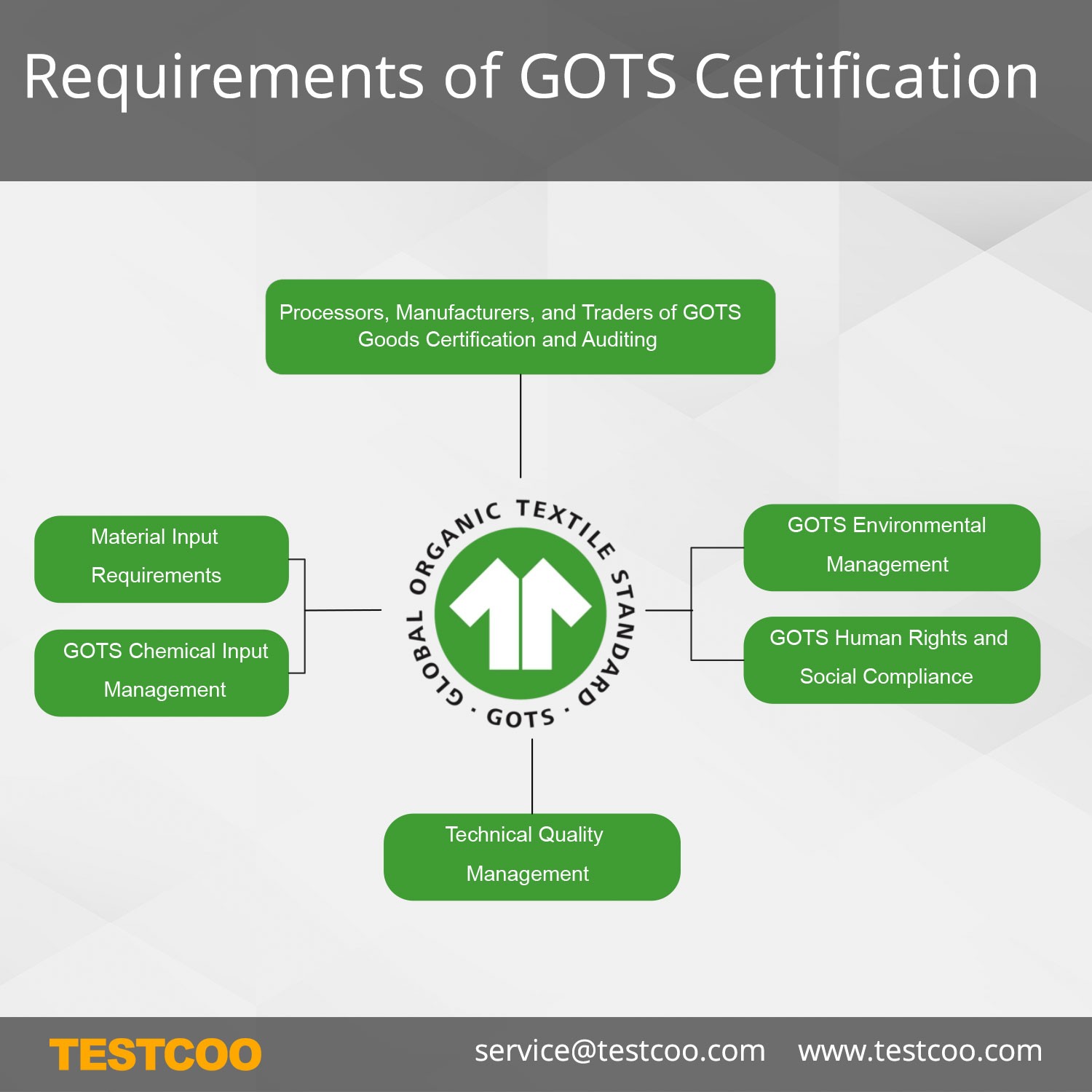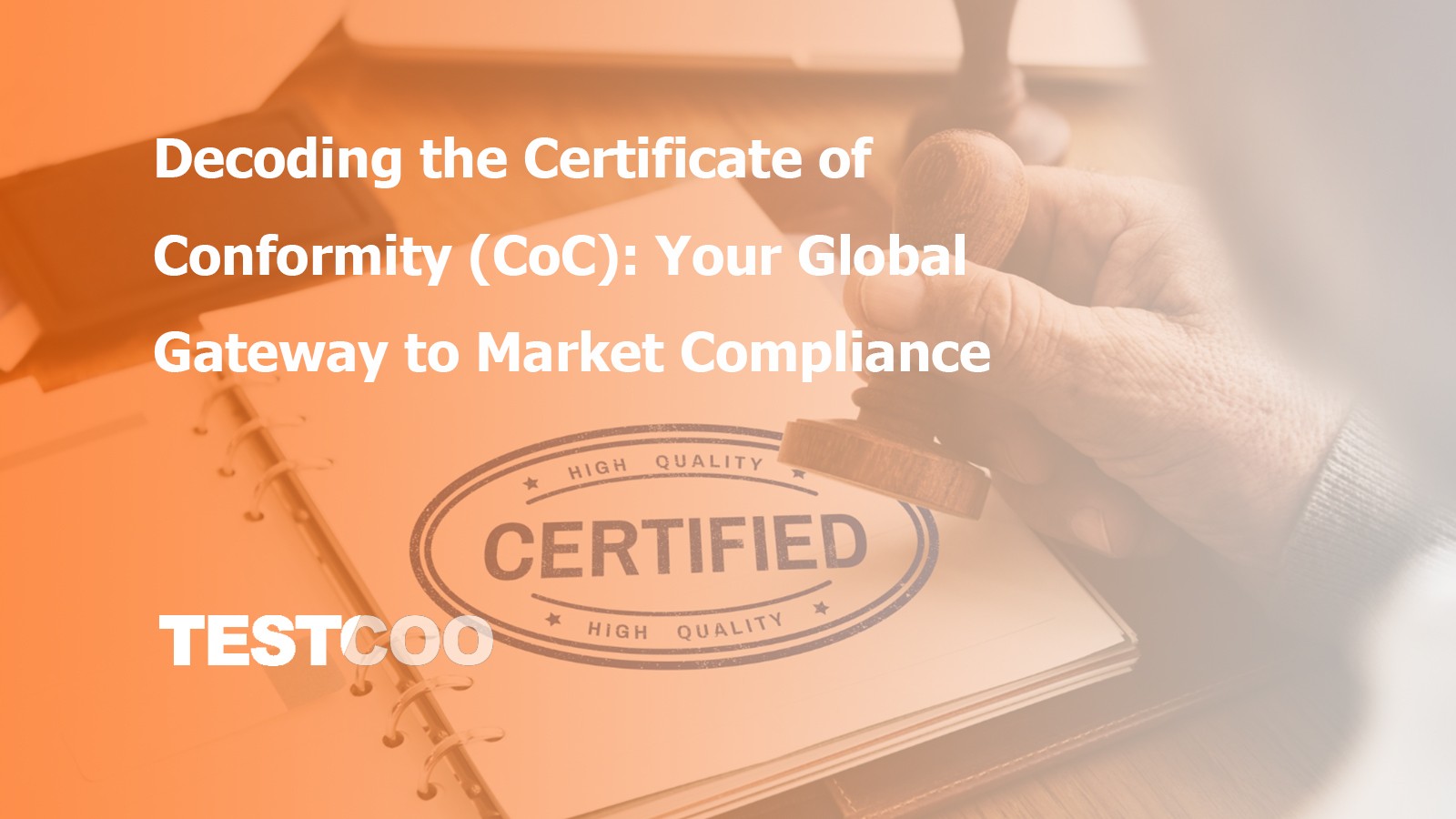Global Organic Textile Standard- GOTS Certification
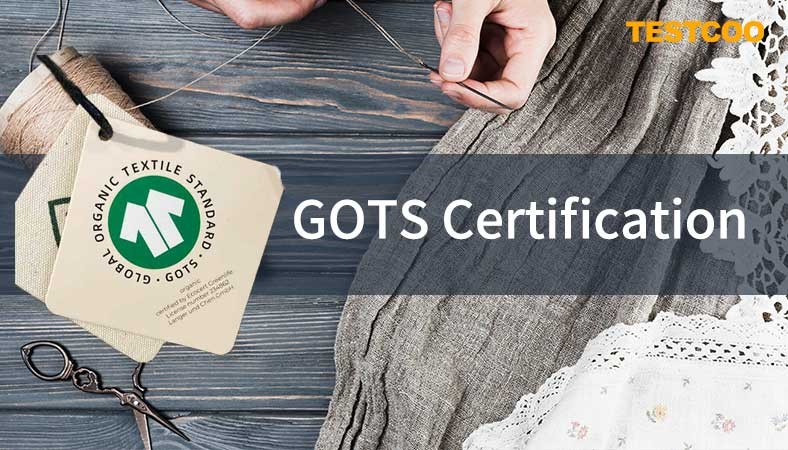
GOTS (The Global Organic Textile Standard) is the worldwide leading textile processing standard for organic fiber. From the harvesting of the raw materials, environmentally and socially responsible manufacturing to labelling, textiles certified to GOTS provide a credible assurance to the consumer.
Many products can become GOTS certified, including yarns, fabrics, clothes, home textiles, mattresses, personal hygiene products, as well as food contact textiles and more (excluding leather products).
Introduction of GOTS Certification
Aim of GOTS
The aim of the GOTS (Global Organic Textile Standard) is to define requirements to ensure the organic status of textiles, from harvesting of the raw materials, through environmentally and socially responsible manufacturing up to labelling in order to provide a credible assurance to the end consumer.
Scope and Structure of GOTS
GOTS covers the processing, manufacturing, packaging, labelling, trading, and distribution of all textiles made from at least 70% certified organic natural fibres. The final product categories may include, but are not limited to, fibres, yarns, fabrics, garments, textile accessories (carried or worn), textile toys, home textiles, mattresses, beddings as well as personal care textile products, and Food Contact Textiles.
GOTS defines criteria for textile producers, manufacturers, B2B operators as well as textile chemicals.
Key Features of GOTS
The Global Organic Textile Standard (GOTS) is the worldwide leading textile processing standard for organic fibres, including ecological and social criteria, backed up by independent third-party certification of the entire textile supply chain.
GOTS certification builds upon four distinctive and unique features:

Organic Fibers: A textile product carrying the GOTS label must contain a minimum of 70% certified organic fibers, a product with the label grade 'organic' must contain a minimum of 95% certified organic fibers.
Ecological and Social Criteria: GOTS evaluates the processing and manufacturing of textiles on the basis of both, environmental and social criteria. This means assessing everything from the chemical inputs being used to the ethical treatment of workers.
All Processing Stages: The standard covers the processing, manufacturing, packaging, labelling, trading and distribution of all textiles made from at least 70% certified organic fibers. All steps in the processing, manufacturing and trading of organic textiles are covered by GOTS.
Third-Party Certification: On-site inspection and certification of processors, manufacturers and traders is performed by independent Third-Party GOTS accredited Certification Bodies and forms the basis of the GOTS monitoring system. It serves to provide a credible assurance for the integrity of GOTS certified textiles.
Requirements of GOTS Certification
1. Processors, Manufacturers, and Traders of GOTS Goods Certification and Auditing
· Approved are natural fibers that are certified 'Organic' or 'Organic in-conversion' according to any standard approved in the IFOAM Family of Standards for the relevant scope of the production (crop or animal production). This includes Regulation (EU) 2018/848, USDA’s National Organic Program (NOP), and APEDA’s National Programme for Organic Production (NPOP), China Organic Standard GB/T19630.
· Processors, manufacturers, and traders of GOTS Goods shall become GOTS Certified Entities.
2. Material Input Requirements
Only organic certified fibers shall be used in GOTS Goods.
3. GOTS Chemical Input Management
A Certified Entity shall only use chemicals which are assessed, approved, and explicitly listed on the GOTS Positive List and shall have copies of valid Letter of Approvals and Safety Data Sheet documents on hand listing all Preparations they are using in processing and manufacturing of GOTS Goods as verification proof that all colourants and textile auxiliaries used for GOTS Goods are approved.
4. GOTS Environmental Management
In addition to GOTS criteria, Certified Entities shall assure compliance with the applicable national and local legal environmental requirements applicable to their Global Organic Textile Standard (GOTS) · Version 7.0 · March 2023 Page 23 of 48 processing/manufacturing stages (including those referring to emissions to air, wastewater discharge, as well as disposal of waste and sludge).
Certified Entities shall have a written environmental and chemical management policy that is appropriate to the nature of their business. In addition, necessary procedures shall be in place to allow monitoring and improving relevant environmental management performances in their Facilities.
5. GOTS Human Rights and Social Compliance
GOTS Human Rights and Social Criteria apply to Certified Entities employing Workers engaged in all stages of textile processing, manufacturing, packaging, labelling, trading, warehousing, and distribution of all textiles made from at least 70% certified organic natural fibers.
GOTS human rights and social compliance including:
· Forced Labor
· Child Labor
· Discrimination, Harassment And Violence
· Gender Equality
· Freedom of Association And Collective Bargaining
· Occupational Health And Safety (OH)
· Remuneration And Assessment of the Living Wage Gap
· Working Time
· No Precarious Employment is Provided
· Migrant Workers
· Homeworkers
· Social Compliance Management
6. Technical Quality Management
Certified Entities shall have a document, a ‘Product Quality Manual’ for Quality Management System (QMS). Such a Manual shall be appropriately made available to the relevant staff and Workers.
Who Needs to be Certified?
The GOTS logo can only be applied to the final product if all stages comply with the GOTS criteria. Therefore, all processors, manufacturers, and traders of textiles need to be certified.

First Processing Stages
As a processing standard, certification according to GOTS begins with the first processing stage of textile fibers.
During an on-site inspection, a facility at the first processing stage should show evidence that organic and conventional fibers are never commingled to avoid contamination. This can be ensured via different storage locations, clear markings, proper storage and handling, etc.
Spinning
Spinners must purchase GOTS certified raw materials and maintain records of quantities purchased. Once more, consideration of wastage, volume reconciliation, and appropriate transportation documentation are some other steps that should be undertaken.
Any paraffin products used must be fully refined with a limited value for residual oil of 0.5%. Machine oils coming in touch with organic yarns must be heavy metal-free. Synthetic fibres, which are to be dissolved at a later processing stage, are not allowed to be used.
Weaving and Knitting
Natural sizing agents should be used. Limited usage of synthetic sizing agents is permitted as well. Machine oils coming in touch with organic yarns must be heavy metal-free.
Separation and identification of organic yarns, warp beams, fabric rolls, etc. must be ensured in storage and on the shop floor.
Fabric processors must purchase GOTS certified yarns and maintain records of quantities purchased. Wastage, volume reconciliation and transportation documentation shall be verified during an onsite audit.
Wet-Processing
Buying GOTS certified raw materials, maintaining records of quantities, consideration of wastage, volume reconciliation, and appropriate transportation documentation.
Chemical inputs used for wet-processing of GOTS Goods must be approved prior to their use.
For sizing, at least 75% of sizing agents should be of natural origin. For pre-treatment, ammonia treatment, as well as chlorination of wool are prohibited. Only oxygen-based bleaches like peroxide, ozone, etc. are allowed.
For dyeing and printing, there are additional curbs on allergenic dyes, carcinogenic and suspected carcinogenic colourants, as well as dyes containing heavy metal. To avoid exploitation of natural resources, the use of natural dyes and auxiliaries that are derived from a threatened species listed on the Red List of the IUCN is also prohibited.
For printing, there are limits for inputs containing permanent Adsorbable Organic Halides (AOX). Additionally, printing methods using aromatic solvents, phthalates or chlorinated plastics (e.g. PVC) are prohibited.
For finishing, the use of synthetic inputs is forbidden for certain treatments. These include anti-microbial, coating, filling, stiffening, lustring, matting and weighting. At the same time, finishing methods like sand blasting, which are considered harmful to workers, are prohibited.
Manufacturing
Manufacturing processes use a variety of accessories for functionality and/or fashion requirements. They must meet stringent criteria for residue of hazardous substances, following the following Restricted Substances List (RSL).
Machine oils coming in touch with organic textiles must be heavy metal-free. Separation and identification of organic products is essential. Buying GOTS certified raw materials, maintaining records of quantities, consideration of wastage, volume reconciliation, transportation documentation, etc. are necessary.
The Certified Weight shall be the weight of GOTS certified raw materials used in the final product, after reducing wastage. Clear computation of weight of accessories and additional fibers must be available for the purpose of volume reconciliation and Transaction Certificates.
Trading
Traders having a turnover of more than 20.000 Euro per year from GOTS Goods must become certified.
Traders that are not obliged to become certified, because their annual turnover with GOTS Goods is less than 20.000 Euro, must register with an Approved Certifier.
Retailers do not need to become certified but may voluntarily choose to become certified.
Some parameters are equally applicable to all processing stages under GOTS certification, like:
·Social Criteria
·Ethical Business Behaviour
·Environmental Management
Why Choose TESTCOO for GOTS Certification?
-large expertise in the audit and certification of supply chains, processes, and management systems.
-providing you visibility into your certifications and supporting faster business transactions.
-Process management and guidance throughout the entire certification life cycle.
-TESTCOO provides competitive price. Inquire now and enjoy unique benefits! Best Rate Guaranteed.
Free Sample Report Performance Quality Control
Download a sample report to keep control of your supply chain!
Featured Articles
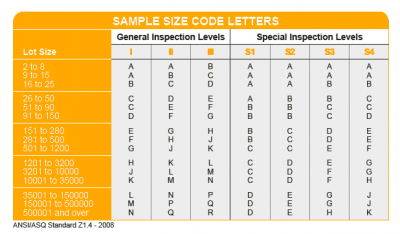 AQL Table | How to Read It
AQL Table | How to Read It TOP 10 Common Defects in Garments Quality Inspection
TOP 10 Common Defects in Garments Quality Inspection Product Packaging and Shipment Label requirements for Amazon FBA
Product Packaging and Shipment Label requirements for Amazon FBA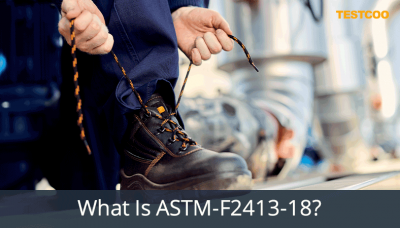 What Is ASTM-F2413-18? Protective Footwear Standard
What Is ASTM-F2413-18? Protective Footwear Standard How to Conduct Third-Party Quality Control Inspections for Electric Scooters
How to Conduct Third-Party Quality Control Inspections for Electric Scooters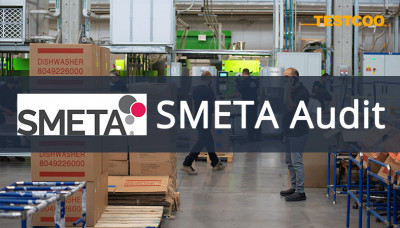 SMETA Audit-What is SMETA Audit?
SMETA Audit-What is SMETA Audit?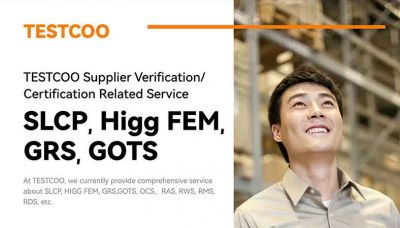 TESTCOO Supplier Verification/Certification Service SLCP, Higg FEM, GRS, GOTS
TESTCOO Supplier Verification/Certification Service SLCP, Higg FEM, GRS, GOTS Quality Control Inspection Company in China
Quality Control Inspection Company in China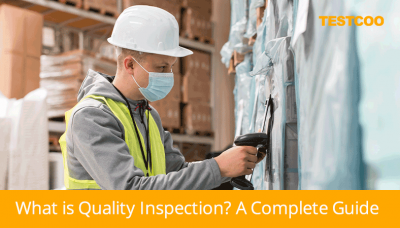 What is Quality Inspection? A Complete Guide
What is Quality Inspection? A Complete Guide Guidelines for Product Inspection in India
Guidelines for Product Inspection in India
Category
- Production Inspection Service
- Factory Audit
- Softline Inspection
- Hardline Inspection
- Electrics Inspection
- Certification
- Checklist
- Manufacturers
- Quality Assurance Basics
- Products Recall
- AQL
- Guidence and Standard
- News
- Supplier Management
- Amazon
- Protective Equipment
- e-commerce quality control
- Indian Manufacturing
- Soft Goods Quality Control
- Supply Chain Management
- Supply Chain Resilience
- E-Commerce Quality Control
- ISO 2859
- Supply Chain Optimization
- Garment Industry
- Higg Index
